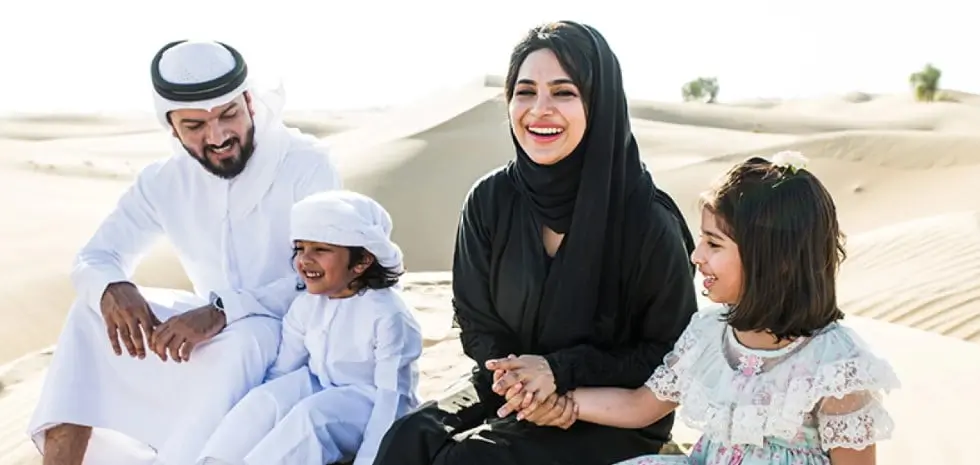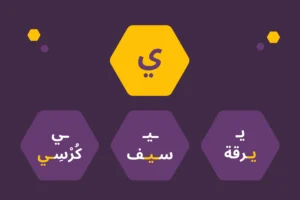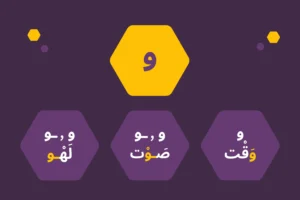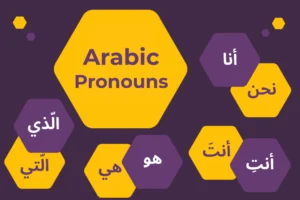One of the most important topics in any language is family and relationships. You talk about family and relationships when meeting new people, catching up with friends, or simply making small talk. That is why knowing how to talk about family members and relationships in Arabic is essential. It is one of the key small talk topics to use in social gatherings. (Read our full blog on Small Talk in Arabic and learn 10 important phrases on different topics here)
So today, we are going to look at different Arabic phrases that will enrich your daily conversations. They include questions to enquire about family and start the conversation and sentences that you can use to answer questions about family and introduce these close relations. You can also use them to share updates about your family or express your views when it comes to family and build up deeper conversations.
So, are you ready to add the depth and warmth of family to your conversations?
Arabic Phrases about family and relationships

How’s your family?
Kyfa ḥālu usratka?
كيفَ حالُ أُسْرَتكَ؟
A great way to initiate conversation and show interest in someone’s life is by asking about their family. You can use the phrase “كيف حال أسرتك؟”, which means “How is your family?” This question is suitable for both formal and informal settings and can lead to further discussions about family members and their well-being.
My family is big
ʻĀʼilty kabyrah
عَائِلتي كَبيرة
If someone asks about your family, you might want to share how big or small it is. To say that your family is big, use the phrase “عائلتي كبيرة”. This can prompt further conversations about the number of siblings, parents, or other relatives you have.
Do you have brothers or sisters?
Hal ladyka ikhwah aw akhawāt?
هل لَديكَ إخوة أو أخَوات؟
I have one brother and two sisters.
Ladyya akhun wāḥidun wʼukhtyn
لَديَّ أَخٌ واحِدٌ وأُختين
Inquiring about siblings is a common topic of conversation, and you can ask someone if they have any brothers or sisters with the phrase “هل لديك إخوة أو أخوات؟”. To respond, you might say, “لدي أخ واحد وأختين”, which means “I have one brother and two sisters.”
This is my young son.
Hādhā ibny alṣṣaghyr
هذا اِبني الصَّغير
This is my eldest daugher.
Hadhihi abnaty alkubrá
هَذِهِ ابْنَتي الكُبرى
When introducing your children to others, you can use phrases like “هذا ابني الصغير”, meaning “This is my young son,” or “هذه ابنتي الكبرى”, meaning “This is my eldest daughter.” These phrases provide a simple yet effective way to share information about your children and their age or birth order.
I love my mother very much.
Uḥibbu ummī kathyran
أُحِبُّ أُمِّي كَثيرًا
It’s essential to express love and appreciation for family members, and the phrase “أحب أمي كثيراً” is a heartfelt way to say, “I love my mother very much.” Feel free to replace “أمي” with other family members like “أبي” for “my father” or “أخي” for “my brother.”
Family is the place where you feel comfortable
al-Usrah hiya al-makān alladhī tshʻr fīhi bālrrāḥh
الأسرة هي المكان الذي تشعر فيه بالرّاحة
When discussing the significance of family, you can use the phrase “الأسرة هي المكان الذي تشعر فيه بالرّاحة”, which means “Family is the place where you feel comfortable.” This phrase emphasizes the importance of a supportive and nurturing environment within the family.
My favorite brother is older than me.
Akhī almufaḍḍl akbru minny ʻumran
أخي المُفَضّل أكبرُ مِنّي عُمْرًا
Sharing details about your relationship with your siblings can bring about interesting conversations. You can use the phrase “أخي المفضل هو أكبر مني” to say, “My favorite brother is older than me.”
Marriage is a big responsibility.
Alzzwāju msʼwlyytun kbyrtun
الزّواجُ مسؤوليّةٌ كبيرةٌ
Marriage is a significant life event and a critical topic in conversations about family and relationships. To express the responsibility and commitment that come with marriage, use the phrase “الزّواج مسؤوليّةٌ كبيرةٌ”, which means “Marriage is a big responsibility.” This can lead to deeper discussions about values, traditions, and the challenges and joys of married life.
Real-life Scenarios
Now, we are going to see how you can use these Arabic phrases in real-life scenarios. Below we have two scenarios. In the first, two friends are catching up and checking on each other’s families. In the second, two people are making small talk about family in a gathering with a colleague. Pay close attention to how the new phrases you learned are used and their right context.
Catching Up with an Old Friend
Friend
Hello! How is your family?
مرحباً! كيف حال أسرتك؟
مرحباً! كيف حال أسرتك؟
Hello! How is your family?
You
Everyone is well, thank you for asking. My family is big. How about your family? Do you have brothers or sisters?
الجميع بخير، شكرًا لسؤالك. عائلتي كبيرة. ماذا عن عائلتك؟ هل لديك إخوة أو أخوات؟
الجميع بخير، شكرًا لسؤالك. عائلتي كبيرة. ماذا عن عائلتك؟ هل لديك إخوة أو أخوات؟
Everyone is well, thank you for asking. My family is big. How about your family? Do you have brothers or sisters?
Friend
Yes, I have one brother and two sisters. We have a great time together.
نعم، لديّ أخٌ واحدٌ وأختين. نحن نقضي وقتًا طيّبًا معًا.
نعم، لديّ أخٌ واحدٌ وأختين. نحن نقضي وقتًا طيّبًا معًا.
Yes, I have one brother and two sisters. We have a great time together.
Meeting a Colleague’s Family at a Gathering
Host
Welcome to our home! This is my young son.
مرحبًا بك في منزلنا! هذا ابني الصّغير.
مرحبًا بك في منزلنا! هذا ابني الصّغير.
Welcome to our home! This is my young son.
You
Masha’Allah! He looks great. Let me introduce you to my eldest daughter.
ما شاء الله! يبدو رائعًا. سأعرّفك على ابنتي الكبرى.
ما شاء الله! يبدو رائعًا. سأعرّفك على ابنتي الكبرى.
Masha’Allah! He looks great. Let me introduce you to my eldest daughter.
Host
We’re happy to meet you! Family is where we find support and comfort. We hope you feel welcome here in our home.
يسعدنا لقاءكم! الأسرة هي المكان الذي نجد فيه الدّعم والراحة. نأمل أن تشعروا بالترحيب هنا في منزلنا.
يسعدنا لقاءكم! الأسرة هي المكان الذي نجد فيه الدّعم والراحة. نأمل أن تشعروا بالترحيب هنا في منزلنا.
We’re happy to meet you! Family is where we find support and comfort. We hope you feel welcome here in our home.
Conclusion: Arabic Culture and Talking about Family
In Arabic culture, like so many cultures, family is valuable, and talking about this topic is common and welcome, especially among friends. It shows care and interest in other people and encourages further conversation. The Arabic phrases related to family and relationships we learned in this blog are just the tip of the iceberg when it comes to the rich and diverse Arabic language.
We encourage you to learn and use these phrases, so you can foster stronger connections with Arabic-speaking friends, family members, or acquaintances, while also gaining a deeper understanding of the cultural values that form the basis of these relationships.
Further Practice
If you start using these phrases in your conversations today, you’ll soon find that discussing family and relationships in Arabic can be a rewarding and fulfilling experience. It will give you confidence and help you strengthen your relations.
To help you have further practice, we have for you a Quiz that will allow you to check your understanding of the new phrases you learned from this article.
If you enjoyed these phrases, keep learning how to talk about family and daily life in Arabic with AlifBee — free for 14 days
Finally, we would also like to remind you to check our special Planner that you can use to speed up your learning journey. This planner features a rich 30-page worksheet accompanied by over 200 practical exercises and activities. It serves as an effective tool to reinforce your acquired knowledge and newly learned language and propel your learning journey with plenty of practice opportunities.








